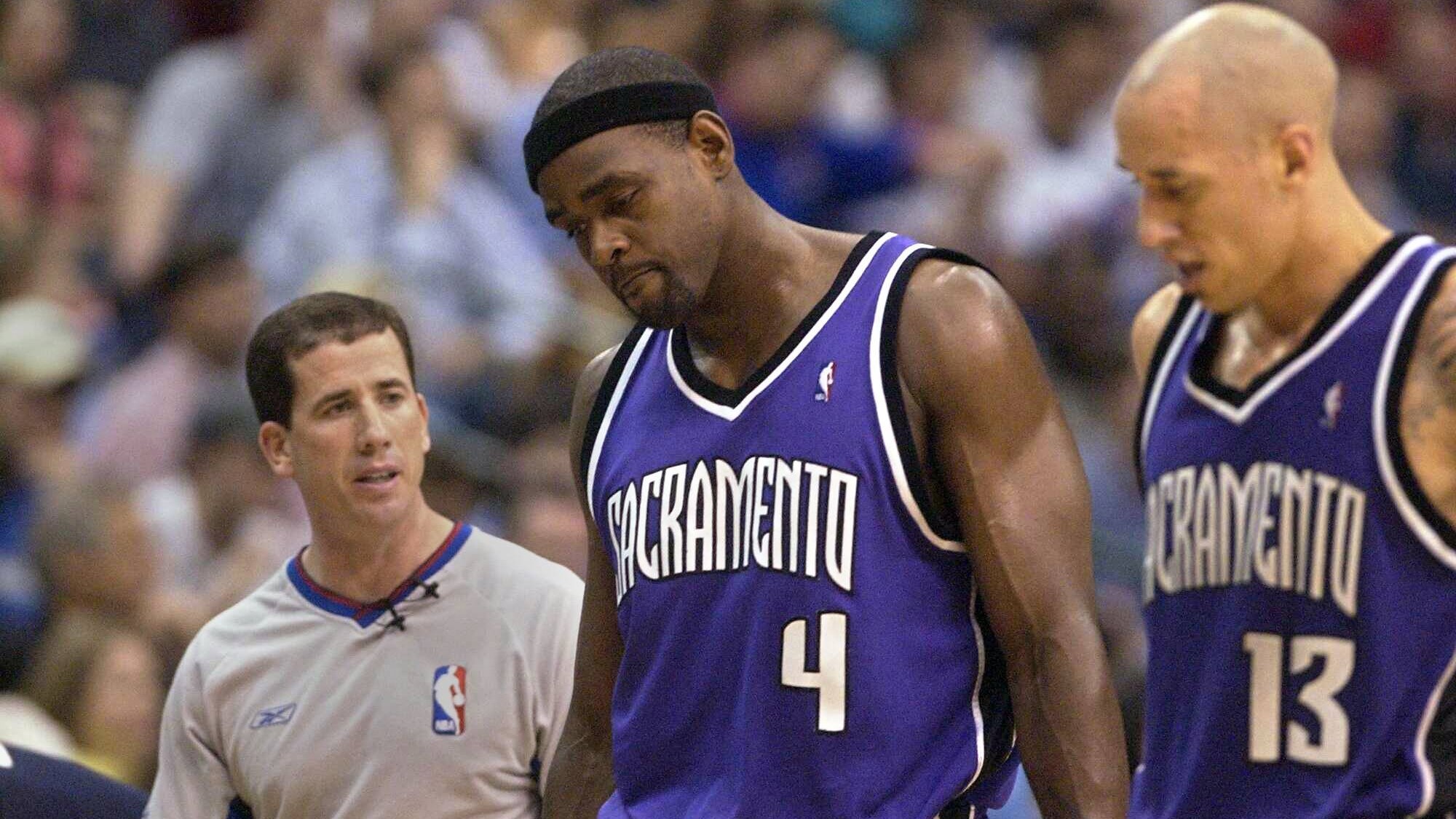SECAUCUS, N.J. — On the morning of December 18, 2011, Paul Buck went to his prestigious six-figure job at Santander Bank in Lancashire, England and held a divisional director’s meeting.
At lunchtime, he tried to kill himself.
From the outside, the married father of three had everything going for him — great job, loving family, perfect health — but he harbored a secret that had been destroying him for a decade.
A gambling addiction had turned Buck’s world upside down, controlling his days and sending him $1.3 million into debt despite a well-paying career in the financial sector.
Buck couldn’t see a way out, and on that fateful winter day, he went to the top floor of his bank’s building and yanked at a window. If it was open, Buck would have jumped out onto the street below.
The window was sealed shut, so he instead found a chair, wrapped his tie around a beam and tried to hang himself.
Buck awoke three hours later, lying on the floor with his head split open and his glasses smashed — still alive only because the tie failed to hold his weight.
“Otherwise,” Buck said, “I wouldn’t be here. I probably shouldn’t be here.”
It was 9 years ago today (24/11) that I placed my last bet, £2,400 on a favourite horse that pulled up. In the aftermath there was a too close to call suicide attempt and 32 month prison sentence. Thank you to everyone who has supported me & @epicpgc in the last 7 years 🙏🏻 pic.twitter.com/wKTq6RSS3h
— Paul Buck (@Paul_Buck20) November 24, 2020
When you first meet Paul Buck, it’s impossible to guess his past.
The CEO of EPIC Risk Management spoke on a panel at the SBC Summit North America on Wednesday about protection for problem gamblers, alongside New York state senator Joseph Addabbo and New Jersey Director of Gaming Enforcement David Rebuck, among others.
Throughout the session he was thoughtful, measured and at ease, emanating nary a clue that he had once plunged into the depths of addiction. But a conversation a few minutes later made clear just how quickly Buck’s life spiraled.
“Nobody is ever going to intentionally become a problem gambler,” Buck said. “Why would you? The addiction had a vice grip on my brain.”
Buck didn’t gamble for the first 18 years of his life, but found himself immersed in betting culture when he went to college in Leeds, England and joined a soccer team.
Peer pressure eventually lured him in, and in a terrible case of good luck, Buck hit a 50/1 underdog bet on his very first attempt at a horse race.
“It’s hard to explain the feeling you had,” Buck said. “It was just complete euphoria. You’ve got these new mates in front of you, your horse has just won so you’re picking up 500 pounds in cash, and you get this amazing feeling in your heart. Like a whole river flowing. I know what that is now. It’s endorphins and dopamine, but at the time it just felt completely euphoric. From not having gambled for 18 years of my life, there wasn’t a day for 17 years where I didn’t. I was trying to chase that feeling again.”
For the next seven years, Buck kept his gambling mostly in check. But then he got a prestigious job as a financial adviser, and a commensurate salary to go with it. He was flying high, and the wagers soon followed suit.
Between 2001 and 2011, Buck gambled roughly $6 million dollars spread across 93 different betting accounts. He ended up losing $1.3 million of it, including $500,000 he stole from his bank.
“For me, I never thought I had a problem,” Buck said. “It sounds crazy. I’m stealing money, owning race horses, owning greyhounds and I never thought I had a problem. One thing that a problem gambler does is train their brain that actually gambling is a solution.
“My wife was the problem. Work was the problem. Traffic jams were the problem. The weather was the problem. Everything else in your world becomes a problem. Gambling becomes the answer to that problem. It becomes your coping mechanism and it becomes your emotional crutch. So for me, I never really tried to stop. Until that one time I really had to, which was a life or death situation.”
29th June 2012 will always be etched in my memory. The day I got sent to prison for fraud that I’d committed to fund a crippling #gambling addiction. My thoughts 10 yrs on …https://t.co/I45iYqCqTS pic.twitter.com/i1CH4Q9AvK
— Paul Buck (@Paul_Buck20) June 29, 2022
Buck’s eureka moment came while reading an article about Gary Speed, a former Premier League soccer player who committed suicide on November 27, 2011. There was speculation that Speed was a gambling addict, and while that proved to be inaccurate, the check-list of issues supposedly affecting Speed were boxes that Buck could tick off one right after another.
“What the article said to me was that he had gambled until every penny was gone, he would start missing work, he would gamble instead of seeing his family,” Buck said. “It wasn’t explaining Gary Speed, it was describing me.”
For two weeks Buck panicked, and it culminated in the spur-of-the-moment suicide attempt that winter afternoon. When he regained consciousness, Buck decided to come clean, and the first person he spoke with was his mother.
“In a heartbeat, I changed my mum’s life forever,” Buck said. “(Before it was:) Paul is a successful financier with a great family. He must be making all the money in the world because he’s a senior director at Europe’s largest bank. He doesn’t talk to us as much as he did but he’s got a job.
“Now it was: Paul, the son whose got a gambling addiction and is a million quid in debt, who just tried to kill himself at work. So it was a crazy conversation to have, and an ever harder one was when I went and told my wife. My whole married life I had this other world going on and nobody knew about it.”
Congratulations to @epicpgc for winning the Player Protection Service Provider of the Year award 🏆#SBCEvents #SBCSummitNorthAmerica #sbcawards pic.twitter.com/MFIVV9MOh6
— SBC NEWS (@SBCGAMINGNEWS) July 15, 2022
Buck was fired from his job and spent nearly three years in prison for stealing money to fund his gambling addiction, which gave him plenty of time to think.
Despite the missteps, there was nothing technically stopping him from returning to work in the financial sector post-release.
But Buck was done with that life and culture, believing that it contributed to his descent. Instead, he wanted to help others avoid the path he careened down, and so he created EPIC Risk Management.
These days, Buck sounds the horn on the importance of gambling education, intent on warning about addiction pitfalls before people find themselves in inextricable holes.
Some of it is done online, but more crucially, Buck and his team, 19 of whom had gambling addictions as well, meet face-to-face with more than 100,000 people each year and emphasize the importance of being proactive.
“If you can get in front of them and they can see the whites of the eyes of someone who’s been there, who’s really gone into the depths of this addiction, it’s far more impactful,” Buck said.
Buck is worried about problem gambling in America. If the United States mirrors the United Kingdom, about 3 percent of bettors could become addicted. With such a large population, that number could be in the millions.
And so he shares his story in hopes that it will keep people from going down that path, because if a well-off banker in Europe can be seized by problem gambling, it can happen to anyone.
“It differs from alcohol and drugs,” Buck said. “I’m not saying it’s more serious, but it’s different. If I’d been a drug addict, a heroin addict, or an alcoholic, I wouldn’t have been able to do that for 10 years without anyone knowing. I would have physically started to change. I probably could have been a heroin addict for six months before someone realized it.
“With gambling, I kept it hidden for 10 years. A whole decade, you know? Some people probably did know, the people who trained my horses, but not family and friends. They all knew something was kind of wrong, but never did anyone suspect it was a gambling addiction. My wife thought I was having an affair because I was always on my phone, late for everything, distracted, had no interest in her. The reality was, I was having an affair. Not with a woman, but with gambling.”






